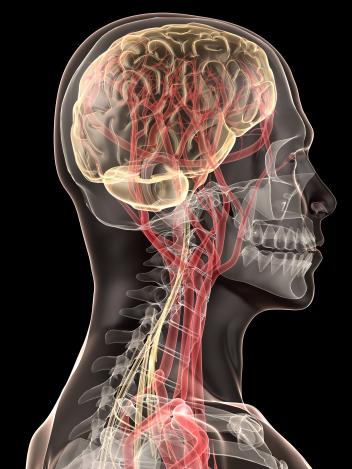Lucknow: Indian researchers have developed a new therapy that has been found to reverse Parkinson's-like symptoms in rats and the researchers believe that the findings could one day lead to a new therapy for human patients.The researchers found that infusing the chemical dopamine into the brain can relieve symptoms in animal models of the disease.
“We designed neurotransmitter dopamine-loaded PLGA nanoparticles (DA NPs) to deliver dopamine to the brain,” said Rajnish Kumar Chaturvedi and his colleagues from CSIR-Indian Institute of Toxicology Research in Lucknow, Uttar Pradesh.
Patients who develop this disease usually start experiencing symptoms around age 60 or older. The researchers noted that among other issues, people with Parkinson's lack dopamine in the brain.
Dopamine is a chemical messenger that helps nerve cells communicate with each other and is involved in normal body movements. Reduced levels cause the shaking and mobility problems associated with Parkinson's.
Symptoms can be relieved in animal models of the disease by infusing the compound into their brains.
But researchers have not yet figured out how to safely deliver dopamine directly to the human brain, which is protected by something called the blood-brain barrier that keeps out pathogens, as well as many medicines.
The researchers wanted to find a way to overcome this challenge.
They packaged dopamine in biodegradable nanoparticles that have been used to deliver other therapeutic drugs to the brain.
The resulting nanoparticles successfully crossed the blood-brain barrier in rats, released its dopamine payload over several days and reversed the rodents' movement problems without causing side effects.
The study was published in the journal ACS Nano.
IANS
http://health.einnews.com/article/261581959/WedBmCsdYQfPZJKFFirst Published: Thursday, April 23, 2015 - 11:54
~~~~~~~~~~~~~~~~~~~~~~~~~~~~~~~~~~~~~~~~~~~~~~~~~~~~~~~~~~~~~~~~~~~~~~~~~~~~
There is currently no cure for Parkinson's - a disease caused by gradual loss of dopamine-producing brain cells. Animal studies show that symptoms can be relieved by infusing dopamine into the brain, but researchers are still working out how to get dopamine drugs to cross from the bloodstream into the human brain, which is protected by the blood-brain barrier.
 The blood-brain barrier protects the brain from pathogens and toxic agents in the bloodstream.
The blood-brain barrier protects the brain from pathogens and toxic agents in the bloodstream.
Now, a team has devised a way to use nanoparticles to ferry dopamine across the blood-brain barrier and shown it reverses Parkinson's-like symptoms in rats.
The researchers - from the CSIR-Indian Institute of Toxicology Research in Lucknow - describe their work in the journal ACS Nano.
The number of people with Parkinson's disease - which mostly strikes after middle age - is rising faster than ever as our population ages. The progressive disease, which gradually erodes quality of life as symptoms worsen, is thought to affect around 1 in 500 people.
The new and growing field of nanotechnology is finding many applications in medicine. One reason for this is that it offers the opportunity to make tiny tools that interact with cells in useful ways.
Dopamine is a brain chemical that nerve cells involved in movement use to send signals to each other.
If levels of dopamine drop, the nerve cells cannot communicate effectively, leading to the shaking and movement problems associated with Parkinson's.
The blood-brain barrier is a dynamic interface made of highly specialized cells that line nearly all the blood vessels in the brain. It protects the brain and central nervous system from pathogens and toxic agents that might be circulating in the bloodstream. It also stops many drugs - including dopamine - from passing into the brain.
Dopamine-loaded biodegradable nanoparticles crossed the blood-brain barrier
For their study, the team packaged dopamine inside biodegradable nanoparticles that had already been developed for delivering other drugs to the brain.
The nanoparticles successfully traversed the blood-brain barrier in rats with Parkinson's-like symptoms, released their dopamine cargo over several days, and reversed the movement problems in the animals.
The authors note the treatment also reversed brain chemical deficits associated with Parkinson's and there were no side effects.
The Indian Department of Science and Technology and the Council of Scientific and Industrial Research (India) helped fund the study.
Earlier this year, Medical News Today learned how researchers have developed a peptide that may slow Parkinson's disease. The man-made peptide stops the formation of faulty protein fibrils that kill the brain cells that produce dopamine.
http://www.medicalnewstoday.com/articles/292848.php?tw


No comments:
Post a Comment